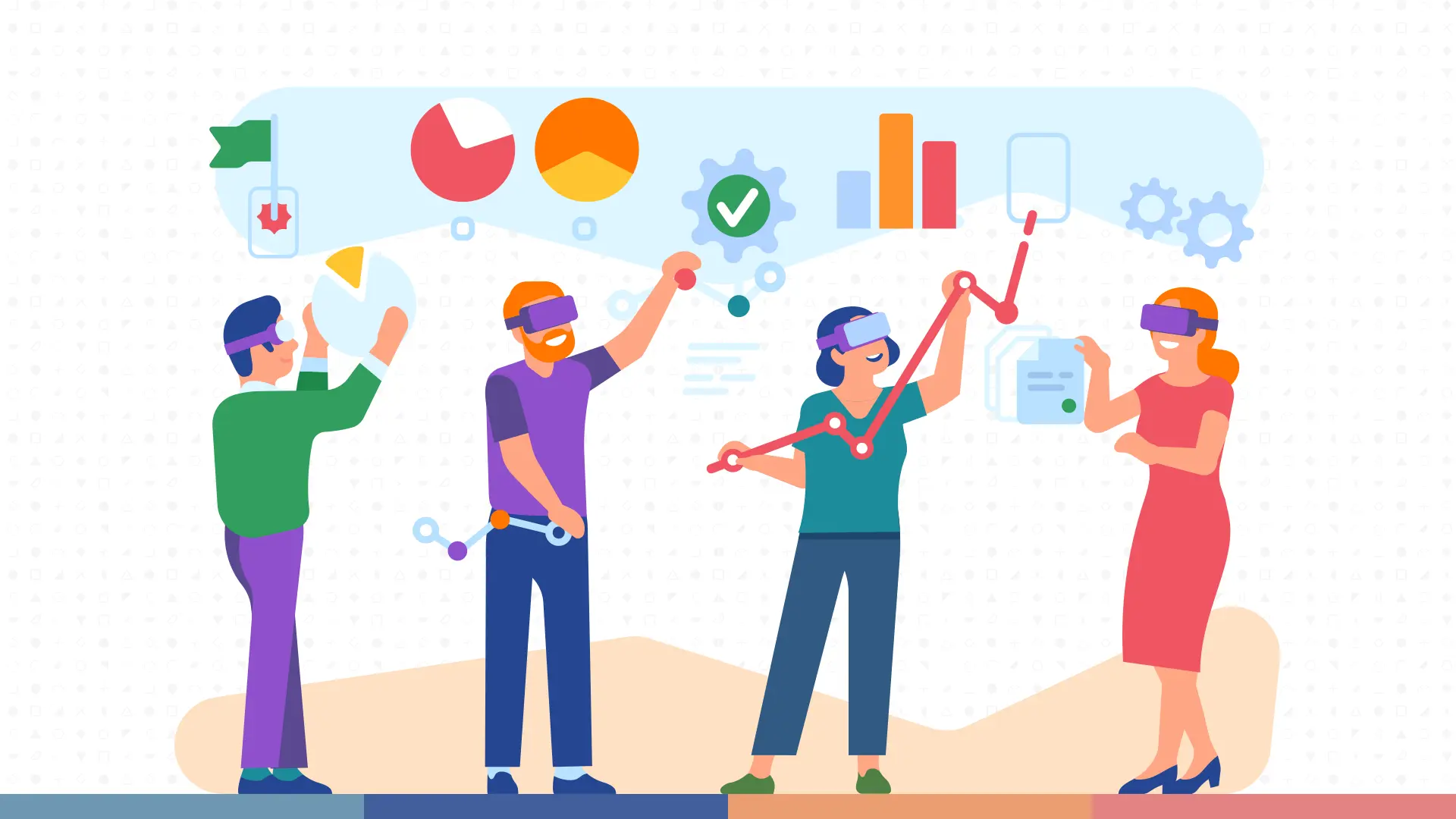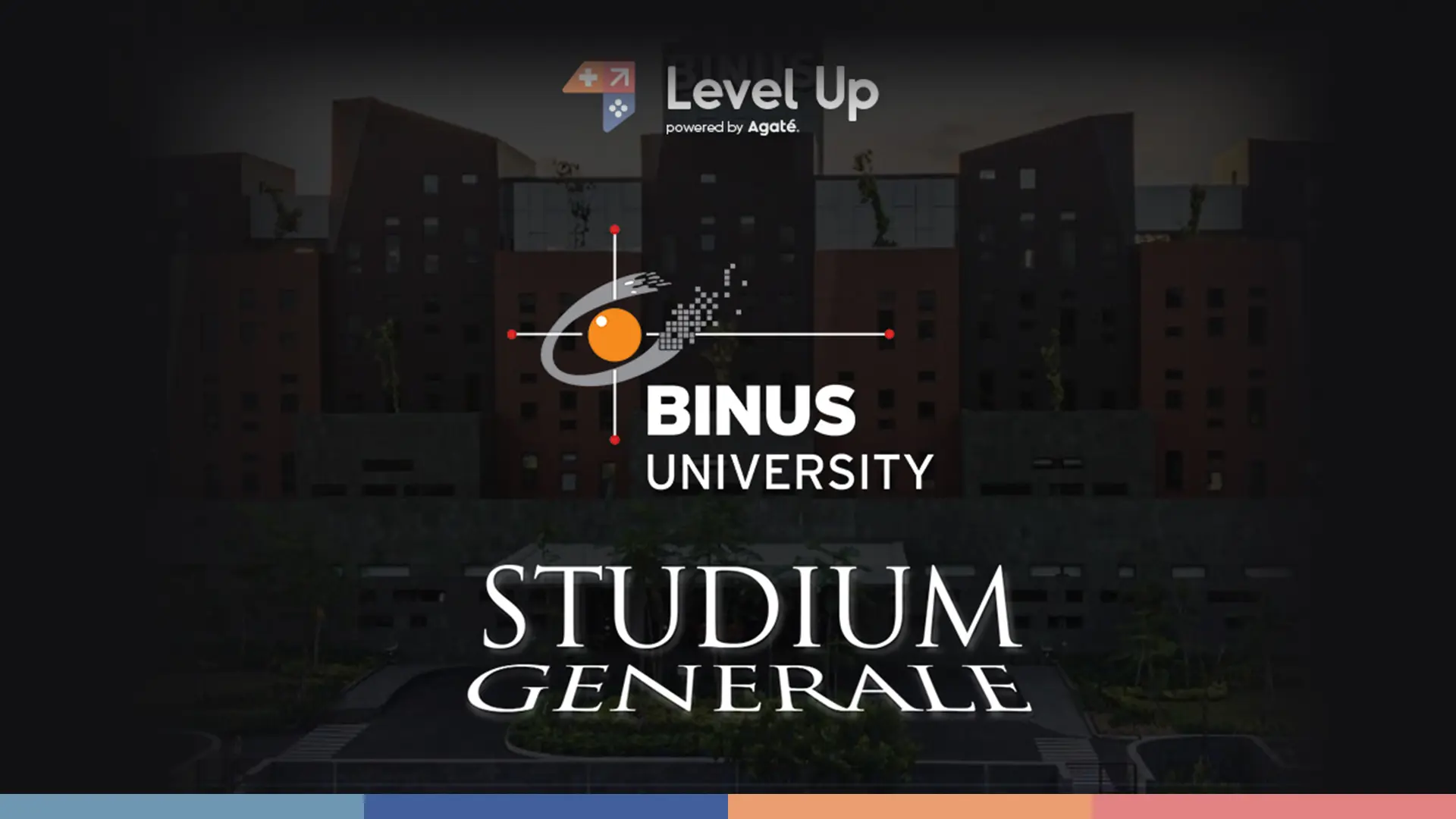Game-Based Assessment: Definitions, Benefits, and Case Studies
Game-based assessments are an evaluation method that employs elements and mechanics similar to those found in games to gauge an individual’s skills, knowledge, and capabilities. Notable components of game-based assessments encompass features like:
- Systems for scoring
- Mechanisms for providing feedback
- Constraints on time
- Levels of difficulty.
These assessments benefit both the individuals being assessed and the evaluators. This approach introduces dynamic elements and methodologies derived from gaming, which have been studied and scientifically refined to provide a more effective assessment process. Incorporating game mechanics means that the process not only becomes more engaging for the participants but also provides a more comprehensive understanding of an individual’s skills and abilities for the evaluators.
Game-based assessments are an innovative evaluation method that introduces dynamic elements and methodologies derived from gaming. Game-based assessments offer a comprehensive understanding of an individual’s skills and abilities, benefiting both the individuals being assessed and the evaluators.
The emergence of Game-based assessments was initially driven by a desire to find more engaging alternatives to traditional tests, which typically took the form of written exams, standardized tests, and oral presentations. While these traditional methods have served their purpose for decades, they often fail to capture an individual’s practical application of knowledge fully.
As research into Game-based assessments progressed, the focus shifted towards not just engagement but also the validity and effectiveness of the assessments themselves. This shift reflects a broader trend in education and employment sectors towards more authentic assessments. The rise of Game-based assessments can be seen as part of this larger movement to create evaluations that better understand how students or job candidates apply their knowledge in practical ways.
As we’ve seen, game-based assessments offer a dynamic and engaging alternative to traditional evaluation methods. But what kind of game are we talking about? What specific types of games fall under the game-based assessment umbrella? Let’s explore some of the most common categories:
- Cognitive Games
These games assess fundamental mental skills like memory, attention, problem-solving, and decision-making. Imagine a candidate navigating a virtual maze while remembering critical details or quickly sorting virtual objects based on specific criteria. This data provides valuable insights into an individual’s cognitive strengths and weaknesses. - Behavioral Games
Shifting the focus to how individuals interact within a simulated environment, behavioral games focus on areas like decision-making, situational awareness, and interpersonal skills. An example might involve playing the role of a manager facing a team conflict or a customer service representative resolving a complaint. Analyzing player actions within these scenarios offers evaluators a window into an individual’s behavioral tendencies and their ability to navigate real-world situations effectively. - Emotional Intelligence Games
Moving beyond cognitive and behavioral assessments, emotional intelligence games assess an individual’s ability to recognize, understand, and manage their own emotions, as well as the emotions of others. Imagine a candidate navigating a virtual social situation where they need to interpret facial expressions or choose the most appropriate response to a colleague’s emotional outburst. This data helps evaluators understand how a candidate might handle emotional situations in the workplace. - Situational Judgment Games
These games place participants directly in the shoes of those being assessed. They present realistic work-related scenarios and ask individuals to make decisions based on their best judgment and understanding of the situation. For example, a candidate applying for a leadership role might face a virtual scenario where they need to choose the best course of action in a tense team environment. These games provide valuable insights into an individual’s problem-solving capabilities under pressure and their leadership potential. - Simulation Games
Offering the most immersive experience among Game-based assessments, simulation games allow individuals to practice and apply their skills in a controlled, virtual environment. This could involve piloting a virtual airplane for a pilot assessment, managing a virtual business for a business management program, or conducting a virtual interview for a job candidate. The data gathered through these simulations helps evaluators understand how well an individual can translate their knowledge and skills into real-world actions.
This is just a glimpse into the diverse world of game-based assessments. By utilizing these types of assessments, evaluators can gain a more comprehensive understanding of an individual’s skill set, leading to more effective decision-making in areas like education, recruitment, and skill development.
Benefits of Game-Based Assessments
As mentioned before, game-based assessments offer a dynamic and engaging alternative to traditional evaluation methods. This leads to more effective decision-making in areas like education, recruitment, and skill development.
Game-based assessments work by simulating real-world scenarios in a controlled, virtual environment. They assess various aspects of an individual’s capabilities, from cognitive and behavioral skills to emotional intelligence and situational judgment. The data gathered through these assessments provides valuable insights into an individual’s strengths and weaknesses, their ability to navigate real-world situations effectively, and their potential in specific roles or tasks.
The benefits of game-based assessments are manifold.
Engaging and Interactive Experience
Game-based assessments provide a more engaging and interactive experience for the individual being assessed. This can lead to increased motivation and effort, resulting in more accurate and reliable assessment results.
Holistic View of Capabilities
Game-based assessments can provide a more holistic view of an individual’s capabilities. Traditional assessments often focus on a narrow set of skills or knowledge areas, whereas game-based assessments can evaluate a wide range of cognitive, behavioral, and emotional skills. This can provide a more complete picture of an individual’s strengths and areas for development.
Informative for Decision-Making
The data gathered through game-based assessments can be used to inform decision-making in various contexts. For example, in recruitment, it can help identify candidates who have the right mix of skills and attributes for a particular role. In education, it can help identify students’ learning needs and tailor instruction accordingly.
In conclusion, game-based assessments represent a significant advancement in the field of evaluation. By providing a more engaging, comprehensive, and informative assessment experience, they hold great promise for improving decision-making in education, recruitment, and skill development.
Game-Based Assessments vs Traditional Assessments
What makes game-based evaluations distinct from conventional evaluations?
When we talk about traditional assessments, we refer to the traditional psychometric evaluation approach, which are psychological instruments that are designed and validated using a scientific approach. There are two primary types of psychometric evaluations frequently employed in HR procedures which are aptitude and personality tests.
In contrast, game-based assessments use a game-like format, departing from the traditional evaluation method. These elements often result in enhanced motivation and overall experience for the candidate.
Let’s get into the key differences and see how they stack up against each other.
Candidate Experience
Traditional assessments have often been criticized for inducing anxiety and stress, which can lead to an inaccurate representation of a candidate’s true abilities. The pressure to perform well can be overwhelming, leading to results that may not truly reflect a candidate’s potential.
On the other hand, gamified assessments aim to tackle these issues by providing an enjoyable experience. By incorporating elements of gameplay, these assessments can reduce the pressure and allow candidates to perform to the best of their abilities in a more relaxed environment.
Trainability
One of the drawbacks of traditional assessments is that repetitive tests or exercises can become easily trainable. This results in familiarity, which may not accurately reflect an individual’s abilities.
Gamified assessments, however, present different game scenarios and difficulty levels, effectively reducing the “training effect” caused by familiarity. This ensures that the assessment remains challenging and continues to accurately measure a candidate’s abilities.
Cheating the System
Traditional assessments, especially those that are text-based, can be easily manipulated. Candidates may strategize their answers based on role expectations, which can skew the results.
In contrast, gamified assessments present a simulation-based assessment that requires immediate action. This prevents participants from cheating and ensures a fair and accurate evaluation of their skills and abilities.
Neuroinclusivity
Traditional assessments, particularly text-based or numerical tests, can be difficult for some participants with dyslexia, dyscalculia, or other learning difficulties. This can result in an unfair disadvantage and lower scores.
Gamified assessments address this issue by using visual, auditory, and kinesthetic elements to suit different learning styles and preferences. This results in a more accessible and inclusive assessment, providing a fair opportunity for all candidates.
Screening Time
Traditional assessments can take longer to administer and score, especially for a large number of applicants. This can result in higher costs and delays in the hiring process.
In contrast, gamified assessments provide immediate feedback and results, as the games have pre-programmed scenarios and scoring algorithms. This results in faster and more efficient screening and selection, saving both time and resources.
What is the Difference Between Game-Based Assessments and Gamified Assessments?
Gamified assessments and game-based assessments are both improvements on traditional assessments, but there’s a key difference in their structure:
Game-based assessments
They are essentially games built from the ground up. They have a narrative, characters, and goals, and the assessment itself is entirely integrated into the gameplay. Your actions within the game determine how you’re evaluated.
Gamified assessments
Take traditional assessments and add game elements. This could involve points, badges, leaderboards, or progress bars. The core assessment (multiple-choice questions, simulations, etc.) remains the same, but the presentation is dressed up in a more game-like format to make it more engaging.
Game-Based Assessments Case Studies
Batique
“Batique” is an innovative game-based cognitive assessment tool designed for children aged 5–12. It was collaboratively developed by the Learning Development Institute, PT Melintas Cakrawala Indonesia, and Gadjah Mada University to align with the AJT Cognitive Test and the CHC theory. The application features eight mini-games, each assessing different cognitive abilities, and provides detailed reports on a child’s cognitive strengths and areas for improvement. With its web application accessibility and proven high validity and reliability among over 1,750 children, Batique stands out as a tailored solution for effective cognitive evaluation in young individuals.
Jejak Penjelajah Waskita
Waskita Karya, a state-owned construction company, sought to improve its recruitment process by implementing a gamification strategy called “Jejak Penjelajah WSKT.” The game was designed to assess applicants’ potential through various mini-games and puzzles that evaluate different types of intelligence, including IQ, SQ, EQ, and AQ. The results have been promising, providing behavioral insights, quality scores, and individualized results that highlight each player’s strengths and areas for development. The engaging narrative and interactive elements of the game have not only enhanced the assessment process but also increased player immersion, leading to a data-driven approach for future enhancements. The game’s success demonstrates the effectiveness of gamification in recruitment and evaluation processes.
Astra Underwater Maze
Astra International, in collaboration with Level Up powered by Agate, developed a game-based assessment tool called “Astra Underwater Maze” to address the challenge of efficiently evaluating a growing number of job applicants. The game aims to assess behavioral traits, particularly persistence, through an interactive experience that goes beyond traditional text-based tests. Players navigate a ship through a maze, and their gameplay is translated into measurable data points, providing a comprehensive evaluation of candidates. The game’s difficulty levels reflect problem-solving skills and adaptability, while the extensive data generated offers nuanced insights for better job role matching. Astra International’s data-driven approach has been validated, as the game’s results correlate with actual employee performance, enhancing the credibility and adoption of this innovative assessment method.
Learn more about Level Up powered by Agate’s game-based assessments case studies here.
FAQ about game-based assessments
a. Gamification vs. Game-Based Assessment
- Gamification
Imagine taking a regular test and adding badges, points, or leaderboards. That’s gamification! It applies game elements (like points, badges, and levels) to non-game activities to make them more engaging and motivating. The core activity (the test in this case) remains the same, but the fun elements make participation more enjoyable. - Game-Based Assessment
This is where things get more game-like. Here, the assessment itself is a game! Think of a virtual surgery simulator that evaluates a surgeon’s skills or a historical simulation where players make decisions and the outcomes become part of the assessment. The game mechanics are designed to assess specific skills or knowledge.
Key Difference
Focus
Gamification focuses on making the process more engaging, while game-based assessment uses the game itself as the evaluation tool.
b. Game-Based Assessment vs. Game-Based Learning
- Game-Based Assessment
As mentioned earlier, this is where the game directly assesses skills or knowledge. The learning happens within the game itself, but the primary purpose is evaluation. - Game-Based Learning
Here, the game is designed specifically for learning. Educational content is woven into the gameplay, and players learn through their interactions. Think of a language learning app where you progress through levels by completing tasks that teach grammar and vocabulary.
Key Difference
Goal
Game-based assessment prioritizes measuring skills, while game-based learning focuses on facilitating the learning process.
In short, gamification adds a fun layer to existing activities, game-based assessment uses games for evaluation, and game-based learning leverages games for education.
Learn more from our case studies here.
If you are interested in learning more about gamification and how it can benefit you or your organization
Check out our gamification services page and contact us today. We are ready to help you create a gamification experience that aligns with your needs and preferences.
Article Authors

Junialdi Dwijaputra

Dias Setyanto
Related Articles
- All Posts
- All








